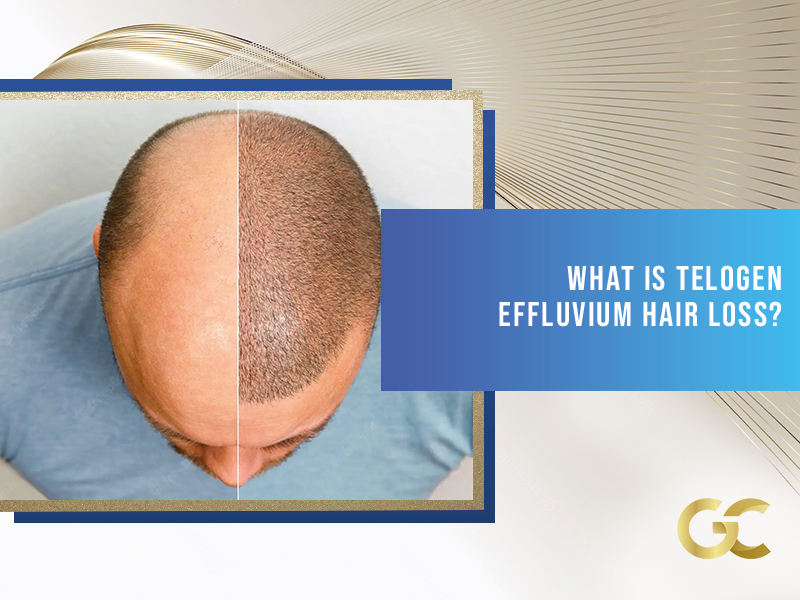People with telogen effluvium condition experience hair shedding and hair thinning. Thankfully, this condition is temporary and subsides after a while. Also, people with this condition do not lose their hair altogether.
Regular hair loss (androgenetic alopecia) begins as a distinct hair loss pattern at the top of the crown and/or sides of the temples in men. And in women, hair loss is generally diffused. It means the hairline does not recede; rather, hair sheds homogeneously. This kind of hair loss takes months and years until it settles. People with telogen effluvium often notice thinning from the top of their head although it is not unusual to experience hair loss in other parts of the body as well.
Causes of Telogen Effluvium
Women experience this condition more often than men due to the following:
- Recent childbirth
- Having gone through a high fever
- Serious infections
- Hormonal changes (such as menopause)
- Excessive psychological stress
These are among the most common causes of telogen effluvium. Other risk factors include having a severe chronic illness, undergoing a hefty surgical procedure, and thyroid hormone diseases.
Certain heavy metals (mercury, for example) can cause this issue as well. Certain types of diets lacking vital nutrients or losing weight too quickly can be a reason as well.
Studies also suggest that certain types of over-the-counter and prescription medication may also result in telogen effluvium. Another study also drew a strong correlation between the manifestation of telogen effluvium and other conditions.
While we are not sure what kind of effect mechanism they have, we do know that taking certain recreational drugs also lead to telogen effluvium in some cases.
Diagnosis for Telogen Effluvium
It is important to determine the underlying cause when trying to diagnose telogen effluvium. Laboratory testing on blood or a scalp biopsy put under a microscope can be helpful in diagnosis.
Treatment for Telogen Effluvium
Often, this condition does not call for any treatment. Usually, it starts receding after 1.5 to 2 months on its own, provided that the underlying cause is addressed.
Hair Experts at Gold City Hair
If you think that you might have telogen effluvium or another disease that affects the health of your hair, consider contacting our team. If you notice hair loss and realise that it affects your life in different aspects, consulting an expert should be a top priority for you.
For those of you seeking to recreate how you look and improve your outlook in life by gaining back some self-confidence, consider contacting us. Our team of experts at Gold City Hair can give you advice on what you can do against hair loss. With a free online consultation, we can provide you with options and possible treatments.

